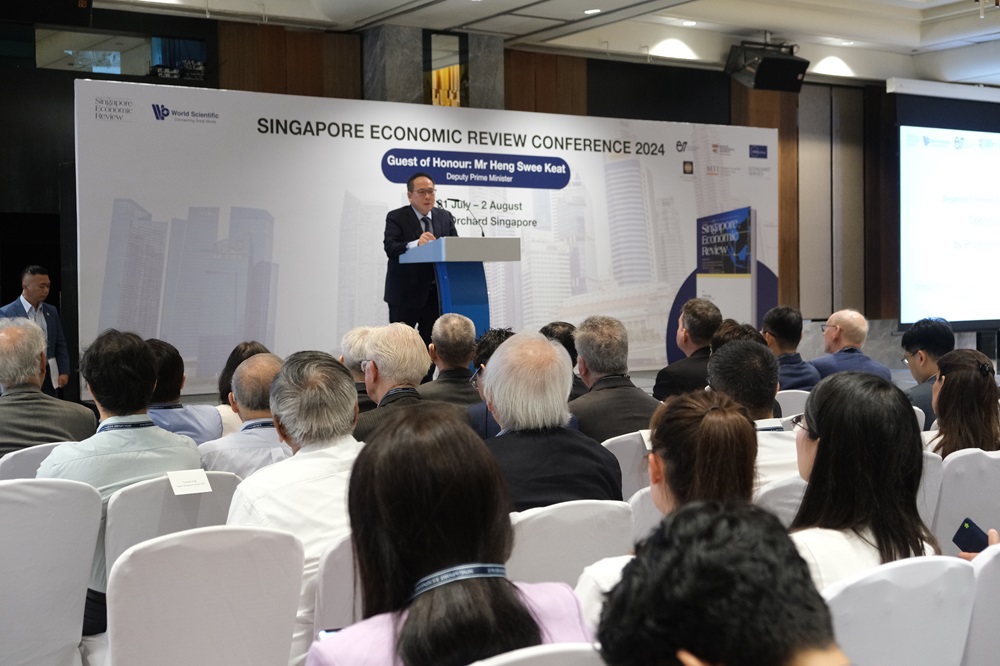
Artificial intelligence, climate change and developments in Asia are among the key topics economists will discuss at this year's Singapore Economic Review Conference.
The three-day conference, which celebrates its tenth anniversary this year, is organised by the Singapore Economic Review journal and brings together more than 250 participants from over 50 countries.
Guest of honour Deputy Prime Minister Mr Heng Swee Keat opened the conference today with an address to participants.
This year's conference topics include Managing Economies in an Increasingly Complex and Fragmented World; Environment, Sustainability and Climate Change; Financial and Monetary Economics; Economic Growth, Trade and Investment and Contemporary Development Issues in Asia and the Pacific.
Notable economists speaking at the conference are Professor Wolfgang Härdles (Humboldt University of Berlin), who will examine the economics of artificial intelligence; Cornell Dean Professor Jinhua Zhao, an environment expert; and Professor Justin Yifu Lin, Dean of the Institute of New Structural Economics at Peking University and former World Bank Chief Economist who will present his thoughts on China and East Asia's rise.
Other key speakers include Dr Tetsushi Sonobe, Dean and CEO of the Asian Development Bank Institute; Professor Jong-Wha Lee, Eminent Professor of Economics at Korea University; and Dr Jomo Kwame Sundaram, Visiting Senior Fellow at Khazanah Research Institute.
The conference is the biennial flagship event of the Singapore Economic Review, a quarterly journal devoted to the publication of high-quality papers on all aspects of economics, with a special emphasis on Asia. The journal's editor is Professor Euston Quah, NTU Albert Winsemius Chair Professor of Economics and President of the Economic Society of Singapore.






